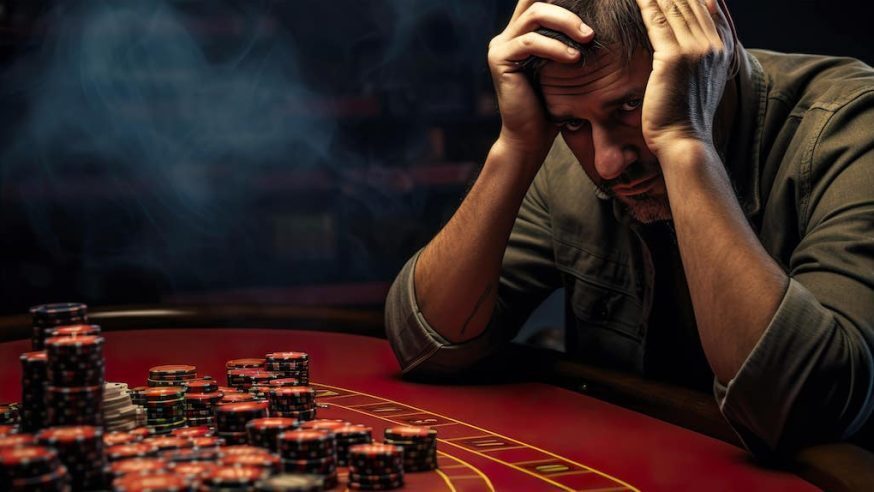How to Recover from a Bad Beat in Poker

We’ve all been there. That moment when you walk away from the poker table, and nothing seemed to go right. Whether it’s a bad beat, a critical mistake, or a spiral of poor decisions, it’s easy to feel frustrated. However, bouncing back is possible.
Bad sessions are part of poker. Even the best players face them. The key difference is how they handle these moments. Successful players don’t let emotional fallout affect future games. Recovering mentally and getting back to your A-game is one of the most important skills a poker player can have.
Acknowledge and Accept the Experience
Losing sessions bring frustration, anger, and disappointment. Ignoring these feelings can lead to more negativity. The first step in bouncing back is recognizing and accepting what happened. When you accept your feelings, you reduce their power over you. Acceptance is not about liking what happened; it’s about recognizing it and moving on. This helps in processing the emotions fully.
Label your emotions. Ask yourself what you’re feeling right now. For example, “I’m frustrated because I lost three buy-ins.” Naming emotions stops the emotional spiral. Practice mindfulness: sit quietly and replay the session without exaggerating or assigning blame.
Remember, every player goes through losing sessions, even top pros like Daniel Negreanu. Say to yourself: This is part of the game. I’ve faced it before and will again.
Separate Facts from Fiction
After a bad beat, it’s normal to think negatively. You might feel like you’ll never win or that you’re terrible at poker. Separating facts from the story helps you regain perspective. Our brains focus on the negative as a survival mechanism, known as negativity bias. Challenge these irrational thoughts for a more balanced view. By distinguishing facts from fiction, we avoid unnecessary mental pain.
Identify facts, which are objective and measurable. Write down indisputable facts about the session, like how you played or what you lost. Avoid attaching emotions or judgments. Challenge cognitive distortions like catastrophizing and overgeneralizing. Is this thought 100% true? Reframe the narrative to focus on growth. Instead of focusing on losing with AA, ask if you played correctly.
Rebuild Emotional Regulation
After a tough session, emotions can run high. Regaining emotional regulation is essential to prepare for your next game. Unchecked emotions derail decision-making. Calming your mind sets the stage for logical thinking and better performance. Use the ‘6-2-7’ breathing technique to calm your nerves: inhale for 6 seconds, hold for 2, and exhale for 7. Repeat for 3-5 minutes focusing on your breathing.
Practice gratitude by reflecting on three things you’re grateful for, whether poker-related or not. This shifts your focus from what’s wrong to what’s right. Create a post-session ritual to help transition your mind. Try journaling for 5 minutes about what went well and what could improve. Meditate or listen to calming music. End every session with a 10-minute meditation focusing on letting go of outcomes and reaffirming your commitment to improvement.
Extract the Lessons
- Learning from a bad beat is crucial for bouncing back. There’s a difference between extracting valuable lessons and unproductive rumination.
- Reflecting on sessions helps identify growth areas. Overanalyzing can amplify self-doubt, so keep reviews structured and objective.
- Focus on decision-making, not outcomes. Poker’s a game of probabilities, not short-term results. Evaluate decisions based on the information available.
- Create a hand review framework and focus on challenging decisions or mistakes. Ask, what was the situation, my thought process, and what could I have done differently?
Reset and Refocus
- Reflecting on your session and learning from it means it’s time to reset and refocus on the future. Resilience lies in letting go of past mistakes and approaching each game with clarity and confidence.
- Emotional baggage can lead to poor decisions. A proper reset ensures you’re mentally ready to play your best regardless of previous outcomes.
- Create a mental reset ritual: quick physical activity, a sentence on what you’re leaving behind, and affirming intentions for the next game.
- Set a clear goal for your next session. Instead of focusing on results, aim for disciplined decisions or staying present.
Build Long-Term Resilience After a Bad Beat
- Losing sessions in poker are inevitable. Variance ensures all players face setbacks. What separates good players is their ability to bounce back stronger.
- Each recovery strengthens mental toughness. Over time, these strategies become second nature, helping you stay focused and adaptable.
- Think of losing sessions as opportunities to develop resilience. They test your ability to regulate emotions, refine strategies, and recommit to goals.
- By approaching setbacks with a growth mindset, what seems like a roadblock becomes a stepping stone.
Bouncing back from a bad beat is essential for any poker player. Accept, reflect, and regain focus. It’s part of the game.
